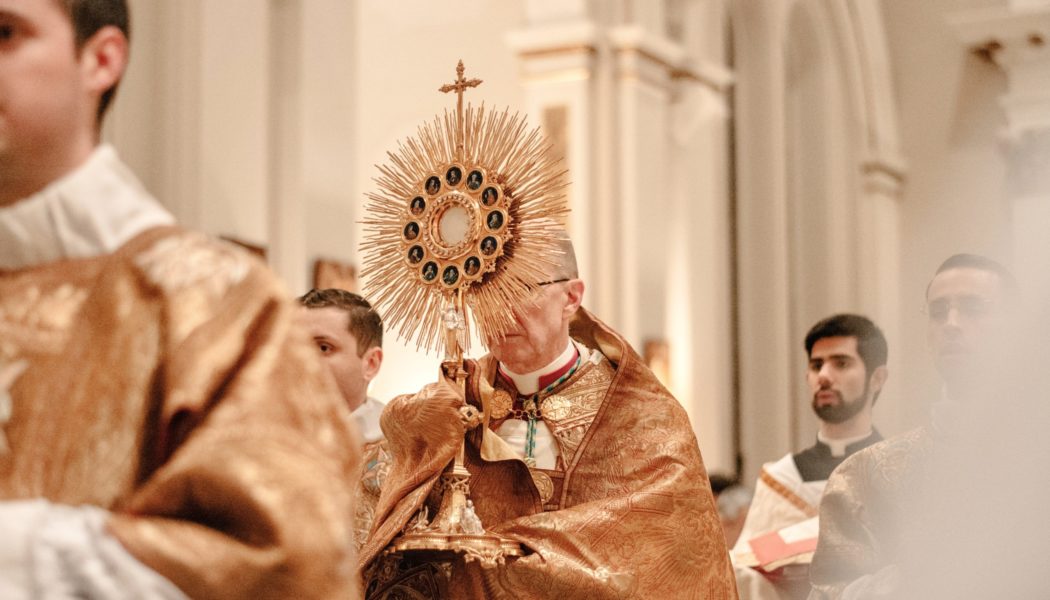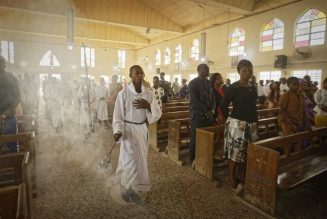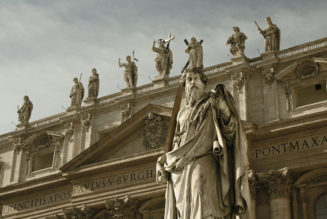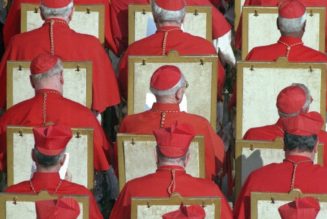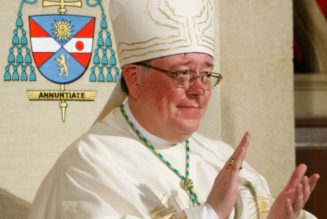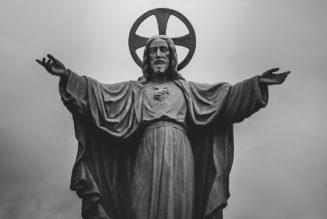Priests and bishops in the United States report overwhelmingly that they are “flourishing” in ministry, despite pressures caused by two decades of clerical abuse scandals and Church responses.
But while U.S. priests report high levels of personal well-being, they also have a widespread lack of confidence and trust in their bishops, according to a study released Wednesday by The Catholic University of America in Washington, DC.
Priests reported that they are less likely to seek personal support from their bishop than they are from any other source, and said they believe bishops regard priests as “liabilities” and “expendable.”
Bishops have had mixed initial reactions to the survey’s findings.
One bishop told The Pillar he is grateful for the report, and praised the work of priests in American dioceses.
Another called the survey results an “examination of conscience” for bishops.
The survey report, “Well-being, Trust, and Policy in a Time of Crisis: Highlights from the National Study of Catholic Priests,” was published Oct. 19 by The Catholic University of America’s department of sociology, in conjunction with The Catholic Project, a university institute founded to facilitate collaboration between the Church’s hierarchy and laity, in the wake of the McCarrick sexual abuse scandal.
The survey compiled data from 3,500 priests across 191 U.S. dioceses, and surveyed bishops, achieving a 67 percent response rate among the American episcopate.
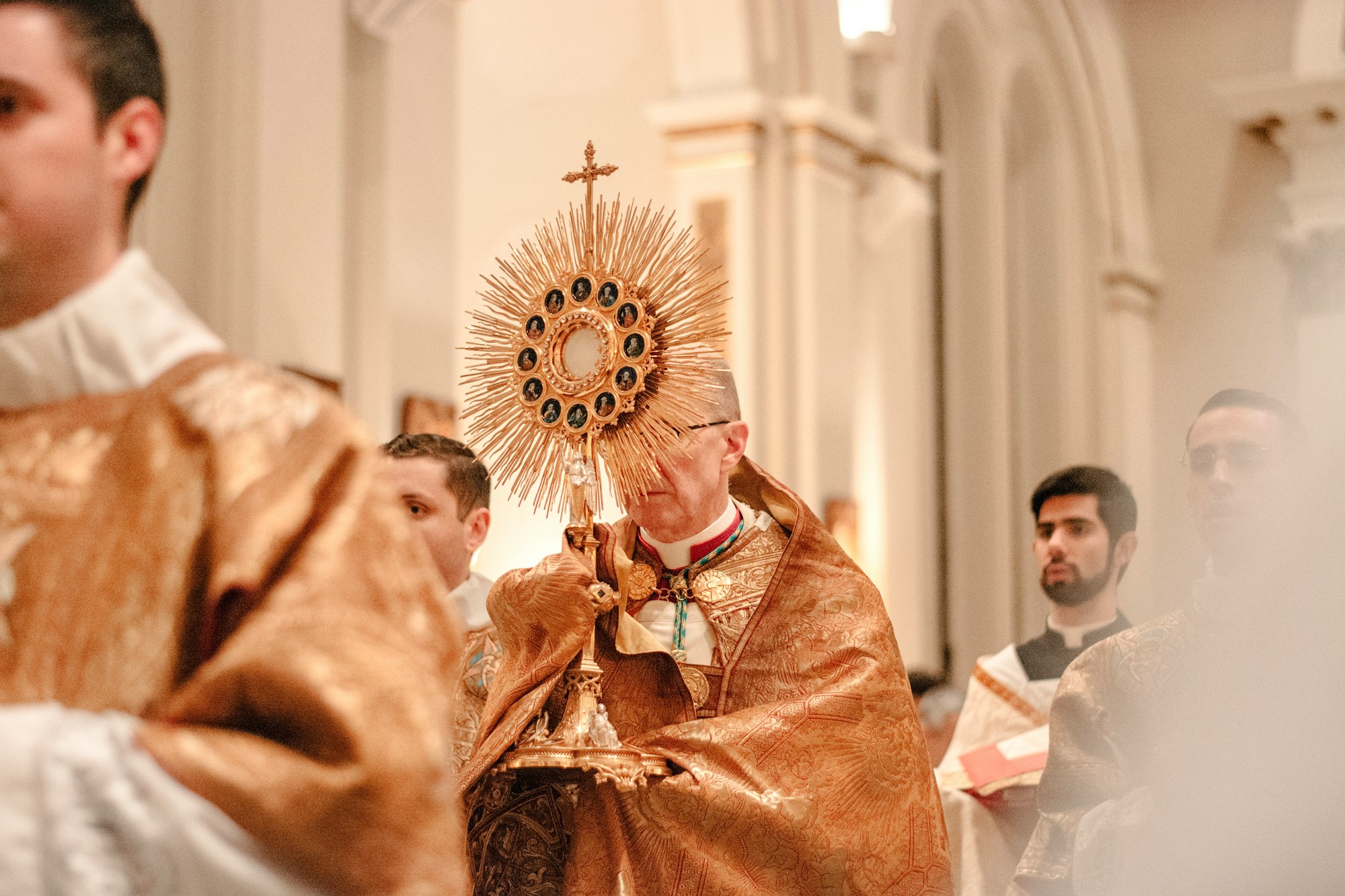
Despite declining numbers of practicing Catholics, diocesan plans to consolidate parishes, and fewer numbers of priests in active ministry, the survey found that the vast majority of American priests say they are “flourishing.”
Participants were asked a series of questions aimed at assessing their personal well-being according to the Harvard Flourishing Index, which measures life satisfaction, mental and physical health, sense of purpose, and quality of relationships.
Across the survey results, more than three-quarters of respondents reported themselves to be flourishing.
The survey said that 77 percent of priests and 81 percent of bishops “can be categorized as ‘flourishing.’”
While few priests reported they are considering leaving the priesthood (4%), the report did note high rates of stress among priests, with nearly half of all respondents (45%) reporting at least one symptom of burnout, and nearly 10% exhibiting “severe” signs.
Younger priests, those under 45, were especially prone to feeling overstretched in their role, and twice as likely as priests over 75 to report some experience of “burnout” in ministry.

The relationship between priests and their bishops emerged as a central point of concern in the survey findings.
Asked to rate their faith in their own diocesan bishop’s leadership and decision-making, fewer than half the respondents (49%) said they had “quite a lot” or “a great deal” of confidence in the bishop.
When asked about the U.S. bishops as a group, the share of priests expressing high levels of trust in their leadership fell to less than a quarter — 24 percent.
In-depth interviews with more than 100 respondents flagged a number of concerns with bishops’ leadership among priests, including the impression that bishops are “imperious,” “operating from hubris” and “consider themselves above the law.”
Some priests also told researchers they believed they are seen as “expendable” resources by their diocese.
Bishop James Checchio of the New Jersey Diocese of Metuchen told The Pillar that he was “not surprised” by the survey’s findings and “grateful for the insight” it provided.
Checchio was named Bishop of Metuchen in 2016, having previously served as the rector of the North American College, the US bishops’ seminary in Rome.
The bishop chairs the U.S. bishops’ conference committee on clergy, consecrated life, and vocations.
Checchio said he was heartened by the “high level of vocational fulfillment” among American priests, whom he called “generous and committed.”
The survey results “remind us of the importance of being always attentive to the care of our priests with the ever growing stressors they experience in ministry” as bishops “strive to address any issues that have damaged the unique relationship we enjoy.”
Bishop Andrew Cozzens of Crookston, Minnesota told The Pillar that he is “deeply pained as a bishop to see the results of the study.”
“It is for me, and I’m sure for many bishops, a cause for real examination of conscience about how we relate with our priests,” Cozzens said.
Cozzens was named to lead the Crookston diocese in 2021, after the resignation of his predecessor, Bishop Michael Hoeppner, whose handling of clerical sexual abuse cases was investigated under the norms of Vos estis lux mundi.
The survey reported a stark difference between how U.S. bishops see themselves, and how they are seen by their clergy.
Priests participating in the survey reported that while bishops are shown “a great amount of respect” by the clergy, priests “don’t really trust most of the bishops.”
“Just looking across the United States and looking across a lot of bishops… I would say I have an overall negative opinion of bishops in the United States… They’re really not leaders or they’re just kind of chameleons… looking to climb up the ladder,” one priest reported.
While the vast majority of bishops said they see themselves as a “brother,” “father,” and “co-worker” (all 70% or more), fewer than a third of clergy agreed with any of those labels. Priests most often chose the word “administrator” to describe diocesan bishops (55%).
The lack of confidence among priests in the bishops in general, and in their own bishops in particular, had a clear correlation to priestly well-being, with levels of “flourishing” among priests reduced by more than 11 percent among those lacking confidence in their own bishop.
The confidence gap between priests and their bishops was also reflected in the social support networks around U.S. clergy.
When asked where they received strong or at least some social support in their life and ministry, priests overwhelmingly turned to lay friends (93%), family members (88%), and fellow priests (73%).
Only 63 percent of respondents said the support they received from their own bishop was “strong” or even “somewhat.”
Perhaps even more significant is the gap in perception between bishops and their priests on the level of episcopal support: 90 percent of bishop respondents told researchers they would respond “very well” to a priest who came to them with personal struggles. But only 36 percent of priests agreed.
“I personally have no confidence in [my bishop]. I would no more call him about something than a stranger on the street,” one priest participant said.
For their part, bishops reported overwhelmingly (92%) that they “take great efforts to know each of their priests personally.”
But more than half of surveyed bishops also said that they are “too busy to personally counsel and pastor” all their priests.
Bishop Cozzens acknowledged that “It’s so easy for us to relate to the Church as a business or to see legal liability as a main concern in difficult situations rather than to see the Church as a family.”
“I have certainly felt this pressure myself at times in dealing with issues around lawsuits and sexual abuse, which I’m sure have affected my relationship with my priests dramatically,” Cozzens said.
“Pope St. John Paul II, in his document Pastores gregis, said the bishop should be father, brother and friend to all; this is certainly true for his priests,” Cozzens told The Pillar.
“How does one learn to be a good father in the midst of all our modern bureaucracy? How can I love my priests as a father, brother, friend? These are the questions I am asking myself as I ponder this painful reality.”
“The image of the Lord and his care for and relationship with his apostles is one place I try to go as I pray for guidance,” Cozzens said.
The survey identified that fallout from recent sexual abuse crises has contributed to a breakdown of trust between priests and their bishops.
When asked about the reforms to clerical abuse policies in the United States over the last two decades, including the USCCB’s 2002 Essential Norms and the Dallas Charter, more than two-thirds of American priests said the “zero-tolerance” approach to clerical sexual abuse demonstrated the Church’s “values” and contributed to rebuilding trust.
But 40 percent of priests also said that “zero-tolerance” policies are more broadly applied than necessary, with one priest saying: “I [understand] zero tolerance for priests abusing children, okay. But we’ve got zero tolerance for priests doing anything wrong at this point.”
“We’ve been saying for a decade now that bishops see their priests as liabilities,” said another priest. “And we know it… We feel it, you know?” one priest said in an interview with researchers.
Eighty-two percent of the surveyed priests reported that they “regularly fear” being falsely accused of sexual abuse.
The US episcopate has come under repeated scrutiny in recent years following the scandal of former cardinal Theodore McCarrick, which reignited the clerical abuse crisis in the country.
Although the Vatican issued new norms aimed at increasing transparency and accountability among the bishops, and several US bishops have been placed under investigation, the Church’s handling of allegations concerning abuse or negligence against bishops often departs considerably from how similar accusations against priests are treated.
While a priest facing any kind of abuse-related allegation can usually expect to be immediately removed from ministry, bishops are often given the choice to remain in ministry while the allegations are investigated. While allegations against priests are often publicized by the diocese, Church authorities in the US and Rome are often hesitant to confirm when allegations against bishops have been received, or disclose when an investigation is underway.
Unlike accused priests, who in U.S. dioceses are assessed by independent lay-led review boards, accusations against bishops are typically reviewed by another bishop from the same region, sometimes with a close personal relationship to the accused.
The disparity between the investigative processes for priests and bishops has sometimes bubbled into open tension.
Some clerics have complained that even when a bishop has committed serious administrative negligence – as was the case of Hoeppner in Crookston – he is permitted to resign, rather than be removed from office – and in Hoeppner’s case, was permitted to offer a “farewell Mass” in his diocese.
The Catholic University report included a section summarizing recommendations made by priests to improve trust in their bishops, with the desire for “open,” “transparent,” and “non-bureaucratic” communication with priests featuring prominently.
“Trust is a two-way street,” one priest said in the report.
“When bishops begin to demonstrate that they trust priests, then priests might begin to feel like we can trust bishops.”
Many responding priests said that bishops appear to lack “accountability” in their exercise of ministry, and flagged that concern as a key issue for clergy and lay faithful alike.
“There is perhaps no more urgent pastoral challenge for bishops today than restoring trust in the wake of the abuse crisis,” the report concludes. “Finding ways to restore and strengthen the trust of their own priests is a huge part of that challenge.”
Reflecting on those points, Bishop Cozzens told The Pillar that “Sincere listening and intentional conversations will be needed by us all as we seek the unity the Lord wants for his family and that we need for the work of evangelization.”
“That must be the way forward,” said Cozzens. “Maybe this is what synodality is really about?”
Join Our Telegram Group : Salvation & Prosperity
